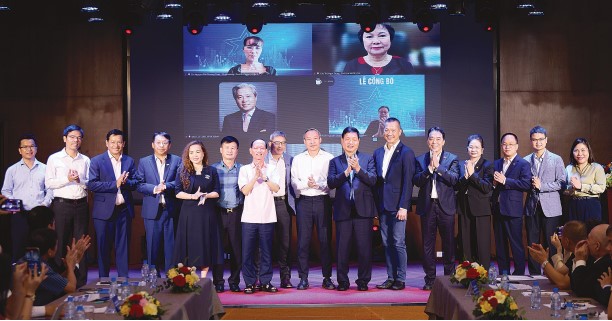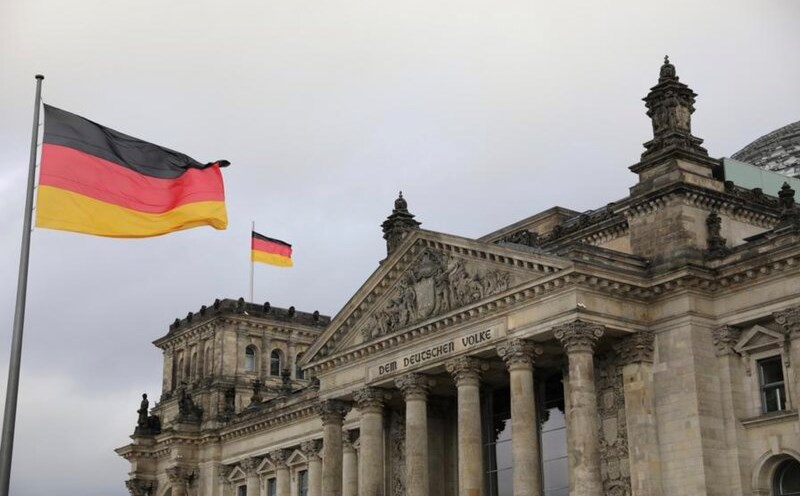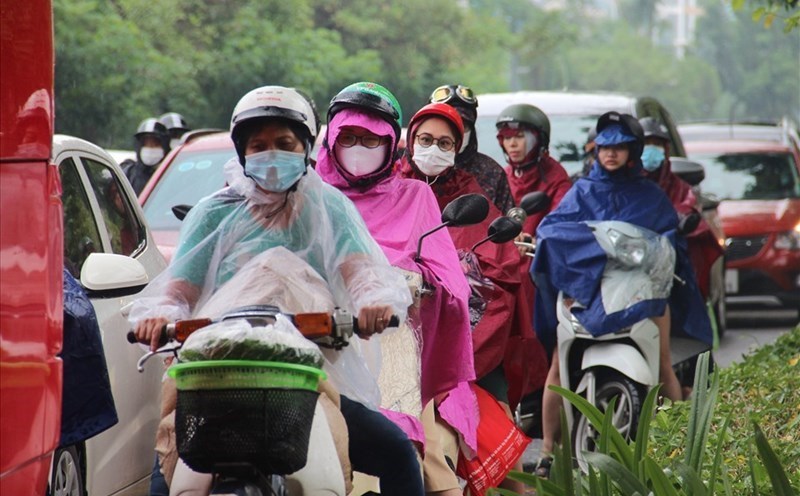From the message "civil - political power: greatness, prosperity
In September 2025, the Private Economic Development Research Board (Board IV) officially announced the model "Vietnam Private Economic Panorama" and launched the Executive Board with key personnel of specialized committees. This is an important milestone, affirming the maturity in development thinking when the private sector is placed in a position of accompanying and co-creating policies with the State. The slogan "Cong Tu - Quoc Quoc Quoc: Strong, Prosperous" became a strong message, expressing the determination to mobilize the combined strength of the whole society to build the country.

In modern history, Vietnam has repeatedly proven the power of the community when the whole nation was united in decisive moments. If it was a people's war for independence before, it is now a national foundation for the entire people to build a strong economy. Politburo member and Prime Minister Pham Minh Chinh emphasized that the State must play a role in creating, businesses must innovate, contribute to the development of the market economy under the leadership of the Party, management of the State and supervision of the people.
The new point of this model is not only stopping at public-private partnerships in infrastructure projects, but also expanding into a mechanism of co-creating policies and sharing responsibilities. The government and businesses do not stand at the two sides of the negotiation table, but sit at the same table, discuss solutions, and commit to act together for the common goal: Building a rich and strong country.
After nearly 40 years of renovation, the private economic sector has proven to be one of the most important driving forces of the socialist-oriented market economy. Currently, this sector contributes about 40% of GDP, more than 30% of total state budget revenue and creates jobs for 82% of the workforce.
Billionaire Nguyen Thi Phuong Thao - Chairwoman of Sovico Group - emphasized: " Private enterprises accompany the Government in policy making so that each economic decision has a scientific and practical basis. This is not only a tool but also a lever to unlock resources, making the private economy a national pillar, playing a key role in the country's development until 2030 and vision 2045". She expects the contribution of the private sector to reach 60-70% of GDP, on par with developed economies.
In particular, Ms. Thao emphasized: "The responsibility of entrepreneurs is not only to make profits but also to create social values, sustainable development, protect the environment and spread trust to the nation". This is a fundamental change in thinking: From "doing business to get rich" to "doing business to serve society".
Changing approaches
The "civil-political" model also means that both sides must change their approach. The State has shifted from the mindset of "management and control" to "creating and supporting", while businesses have shifted from the "request - give" position to proactively proposing, participating and sharing responsibilities.
Politburo member and Prime Minister Pham Minh Chinh has repeatedly emphasized: "It is necessary to trust and assign work to the private economic sector". That confidence is the basis for private enterprises to undertake strategic projects, from transport infrastructure, energy, digital technology to healthcare, education.
At the Discussion with businesses and business associations on Resolution 68-NQ/TW of the Politburo held in June 2025 chaired by Prime Minister Pham Minh Chinh, Dr. Tran Dinh Thien assessed that Resolution 68-NQ/TW has demonstrated unprecedented innovation in institutional reform. This is an opportunity for the private sector to strongly promote and compete fairly with the world. However, for the "civil-political" model to truly operate effectively, there are many barriers that need to be removed. An investment project using land must currently comply with at least 12 laws and more than 20 decrees, causing the preparation time to last up to 2-3 years. VCCI Chairman Pham Tan Cong frankly pointed out that there are still many unsuitable business conditions and administrative procedures that need to be cut or simplified.
Meanwhile, in the digital economic era, brand value, inventions and knowledge have far surpassed tangible assets. Lawyer Mai Thi Thao warned: It is impossible to have a creative economy if Vietnamese brands are still easily stolen. The brand is the crown of a business, losing the brand means losing the market, losing trust". The problem of capital access is also a major bottleneck. Currently, 98% of Vietnamese enterprises are small and medium, but only access less than 20% of outstanding bank credit. Dr. Can Van Luc has proposed the establishment of the Central Credit Guarantee Fund and restarting 28 local funds to support small, medium and enterprise households. In addition, about 65% of small and medium enterprises do not have a digital technology application strategy, showing that training high-quality human resources, especially STEM skills, green technology and artificial intelligence, has become an urgent requirement.
Another aspect of "civil-private partnership" is building culture and business ethics. Mr. Vu Van Tien - Chairman of Geleximco Group - clearly stated that there is no other path than for businesses to work together to create and strive to contribute to society and the country. VCCI Chairman Pham Tan Cong also emphasized that building ethics and business culture is the foundation for sustainable development. VCCI has issued a set of business ethics since 2023 and is ready to work with the Ministry of Culture, Sports and Tourism to implement it into a national project. This reflects the maturity of the business community: From struggling to start a business, they have now put themselves in the mission of serving the country.
The "public-private partnership" model opens up opportunities for private enterprises to participate in key areas of the country. In national infrastructure, Chairman of Hoa Phat Group Tran Dinh Long proposed to clearly stipulate the ratio of 70% of domestic goods in public investment projects, in order to create momentum for the domestic manufacturing industry. In science and technology, Mr. Truong Gia Binh emphasized the release of scientific and technological potential and launched the "AI localization" program to take advantage of opportunities to participate in core technologies. In agriculture and cooperatives, Chairman of the Cao Xuan Cooperative Union Thu Van affirmed that the private economy and cooperatives are a "co-residential relationship", together upgrading the value chain, especially in the fields of clean agriculture and renewable energy. In health and education, Chairman of the Vietnam Private Hospital Association, Dr. Nguyen Van De, proposed to loosen regulations related to medical land and increase the participation of the private sector in providing public services to reduce the burden on the budget.
The appearance of businesses that have "reported" in the journey to become nationals
Notably, the appearance of leaders of businesses that were once considered "five-fighting" in the Committees of the Executive Board of the Vietnam Private Economy Overview Program affirmed new factors ready to commit, innovate and make breakthroughs.
In addition to familiar names such as Geleximco, Vinacapital, Sovico, PNJ, many new businesses are emerging with new aspirations and courage. Dai Dung, Shinec and Thai Hung... are typical faces, contributing to enriching the picture of "civil - political theft".
The name Dai Dung is associated with the Kim Quy steel arch at the National Exhibition Center. The 24,000-ton steel block, with a defective value of only a few millimeters, was completed in 5 months - a miracle that few people thought Vietnamese mechanical enterprises could undertake. Previously, Dai Dung participated in the Lusail and Ras Abu Aboud stadium projects to serve the 2022 World Cup, providing tens of thousands of tons of steel structures, affirming his position on the global construction map.
With 6 clusters of factories with a capacity of 300,000 tons/year, more than 6,000 employees, nearly 1,000 engineers, Dai Dung not only processes but also masters the entire value chain from design to construction. Chairman Trinh Tien Dung affirmed: "If you want to change the world, change from within you". With this philosophy, Dai Dung sets a revenue target of over 1 billion USD by 2030, contributing to making Vietnam a manufacturing powerhouse.
Or like Shinec with Nam Cau Kien Industrial Park (IP) has become a model of sustainable development. With more than 1 million trees, 17 ecological generations and a tree ratio of 33% of the area, Nam Cau Kien converts waste from one enterprise into raw materials for another enterprise, saving costs and creating new value.
UNIDO selected Nam Cau Kien to be on the list of 37 global ecological industrial parks, while Shinec pioneered the application of a digital system for real-time emission management. Chairman Pham Hong Diep considers green and digital development as a "mental path" for Vietnamese enterprises to integrate more deeply into the world.
The presence of new names shows the diverse vitality of the private sector. They represent the pillars: manufacturing industry, green industrial real estate, steel and services. The common point is to link the interests of enterprises with the interests of the nation, considering the prosperity of the country as the foundation for self-development.
All of these efforts are aimed at long-term goals. Resolution 68-NQ/TW has set two historical milestones: By 2030, Vietnam will become a developing country with modern industry, high average income; by 2045, it will become a developed country, high income. Prime Minister Pham Minh Chinh affirmed that businesses and entrepreneurs must pioneer innovation, take the lead in technology, and work with the Government to create development, to realize the aspiration of a strong and prosperous Vietnam.
This aspiration is not a science fiction if we know how to take advantage of the "common- opinion-people-people" model. When private enterprises contribute up to 70% of GDP, millions of new jobs are created, Vietnamese brands reach international standards, the economy will have enough strength to stand shoulder to shoulder with the great powers. In the context of rapid and unpredictable global fluctuations, "civil-political domination" is not only a development model, but an inevitable choice. The State cannot take it alone, just like businesses cannot go individually. Both need to hold hands, share responsibilities, and enjoy the fruits together.
As Ms. Cao Thi Ngoc Dung, Chairman of PNJ, shared: "The leading generation of entrepreneurs will be those who spread, inspire, gather the community to innovate and create together, promote national development". A strong and prosperous country cannot be built only from decisions on paper, but must be built from the commitment of entrepreneurs and the support of the State. That is the spirit of "national congress - political power" - the model for Vietnam to enter a new era of development with the aspiration to rise up and be on par with the world.
The Vietnam Private Economy Overview Model aims at the goal of P common - private economy: Strong, prosperous promoting the mechanism of sharing responsibility between the private sector and state agencies in economic development; also a place where the intelligence, resources and voice converge in depth, major solutions of the private and small-scale business community, contributing to realizing the goal of developing the private economy into the most important driving force of the economy - Mr. Truong Gia Binh - Head of Department IV, member of the Executive Board of Vietnam Private Economy Overview.













